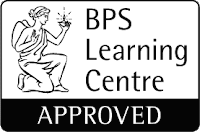Our DVD offer this week is a 5 disc set. Comprehensive CBT for Couples - Frank M Dattilio, Ph.D., ABPP.
http://www.psychotherapydvds.com/Comprehensive-Cognitive-Behavioural-Therapy-CBT-for-Couples
This 6-hour seminar will provide you with all the essential strategies and techniques of Cognitive -Behavioural Therapy in your work with couples.
Dr. Dattilio describes the most effective ways of integrating a CBT approach into your clinical practice. Relevant for a wide range of counselling professionals. Recorded live from the seminar these DVDs will let you feel part of the audience.
http://www.psychotherapydvds.com/Comprehensive-Cognitive-Behavioural-Therapy-CBT-for-Couples
Key Learning Points:
- Effective cognitive-behavioural techniques for working with challenging couples.
- Core schemas and the cognitive distortions that affect relationship dysfunction.
- When to use cognitive vs. behavioural techniques.
- Effective methods of clinical assessment and ways to formulate a plan of intervention.
- When cognitive-behavioural techniques are inappropriate.
- How to maintain cultural sensitivity.
- How to deal with roadblocks and resistance to change.
- How to address the potential for relapse.
Brief Outline:
- Historical Development of CBT with Couples
- Cognitive-Behavioural strategies with couples. Cognition, affect, and behaviour.
- Combined perspectives within a systems framework.
- Role of attachment and issues of vulnerability. Role of core beliefs & schemas.
- Assessment Techniques and Case Conceptualization.
- Conjoint and individual interviews. Use of various assessment measures.
- Development of case conceptualization. Dysfunctional automatic thoughts.
- Assessing personality and other disorders.
- Cognitive & Behavioural Techniques and Procedures for Couples.
As well as 6 CPD hours. This DVD is especially discounted for you. £20 off the regular price if you order within the next 24 hours!
Don’t forget to order online by noon on the 15th November to get the discount. Follow the link below.
http://www.psychotherapydvds.com/Comprehensive-Cognitive-Behavioural-Therapy-CBT-for-Couples
Kind regards









